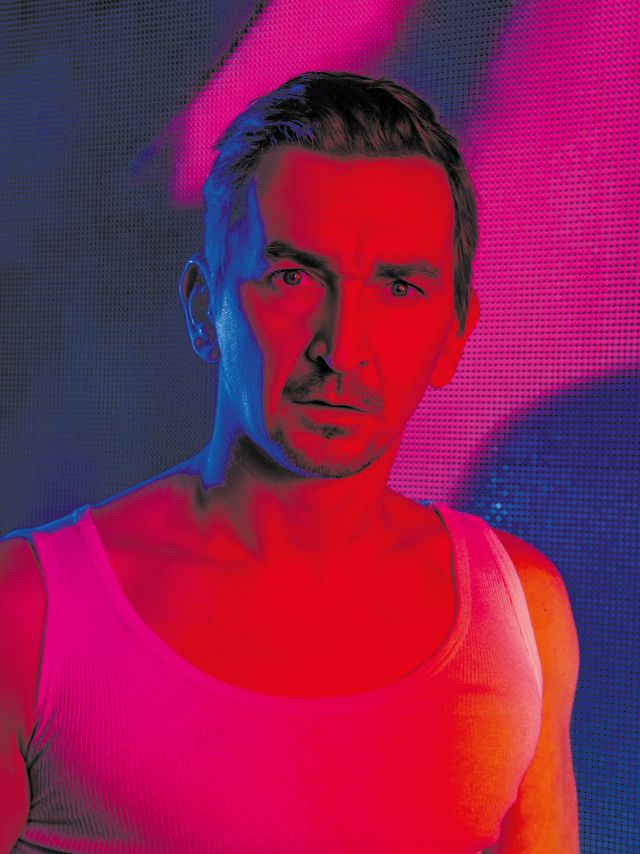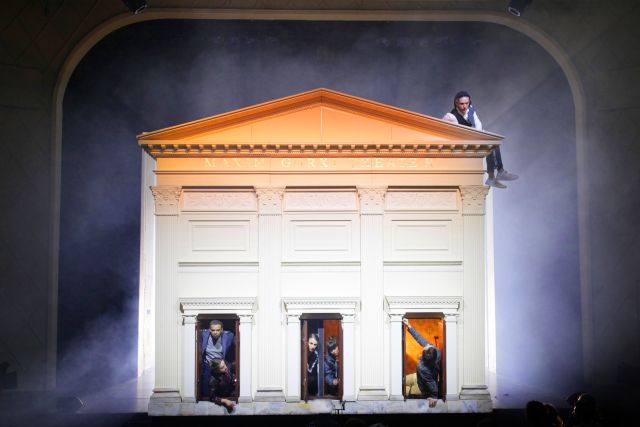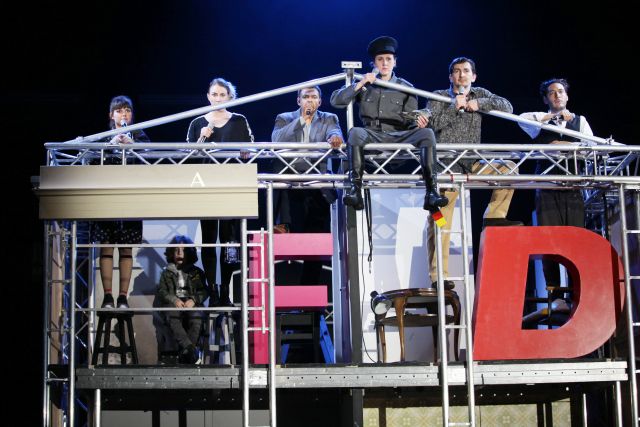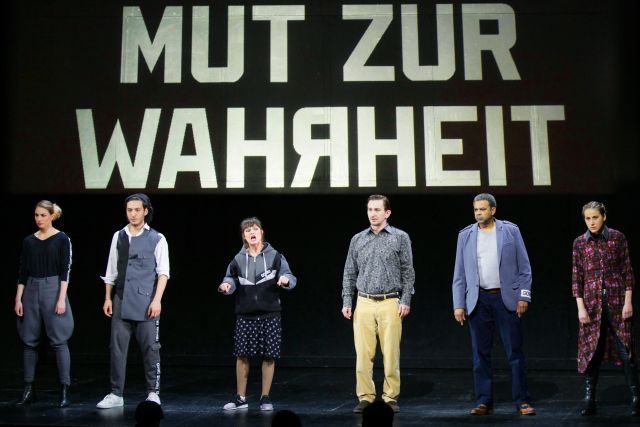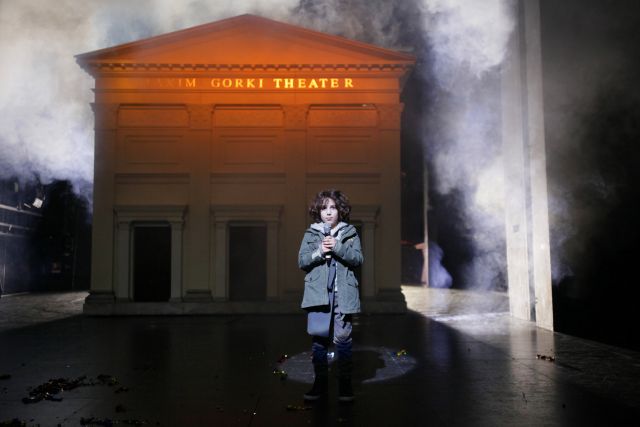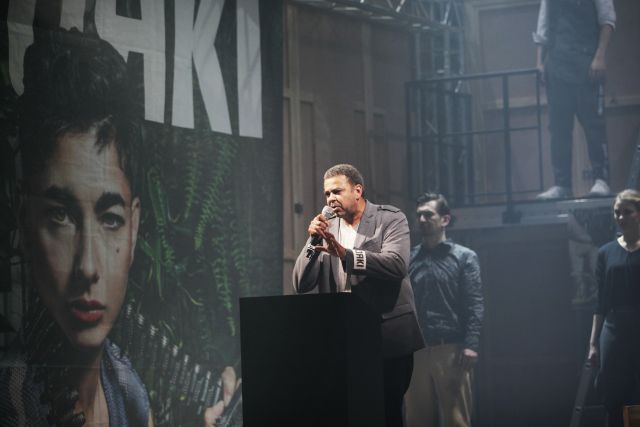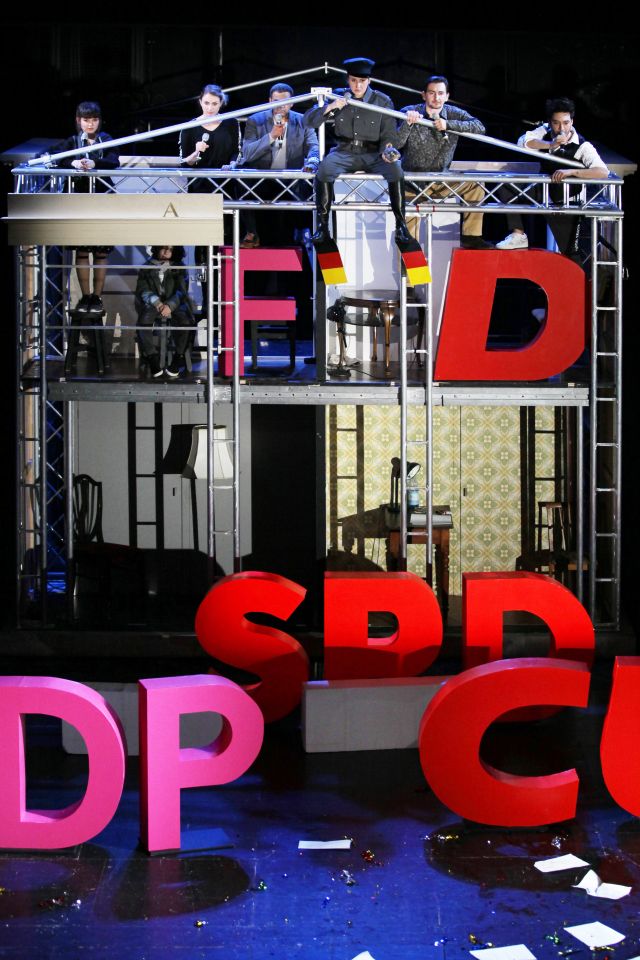Skip to main content
GOЯKI – ALTERNATIVE FÜR DEUTSCHLAND?
ÜBER DIE REPRÄSENTATIVE SCHWÄCHE DES THEATERS UND DER DEMOKRATIE IM FRÜHEN 21. JAHRHUNDERT VON OLIVER FRLJIĆ
We enter parliament in order to supply ourselves, in the arsenal of democracy, with its own weapons. If democracy is so stupid as to give us free tickets and per diems for this work, that is its own affair. To us every legal means is welcome to revolutionise the current state of affairs. […] We do not come as friends, not even as neutrals. We come as enemies!
Joseph Goebbels, 1928
As has already happened in the past, today we’re experiencing anti-democratic forces being legitimized by democratic means once again, acquiring media and real spaces to present themselves and making their views socially acceptable. Then, quite legally, they can overthrow democracy and demand an authoritarian dictatorship. Not only in Poland or Hungary, but also in Germany. Oliver Frljić led the national theatre in Rijeka for three years, was enthusiastically supported by his audience, and bitterly opposed by Catholic Croatian nationalists. Since then he has staged productions in various countries, most recently in Austria and Poland, where his production Klątwa (The Curse), which appeared at the Gorki in June 2017, caused both jubilation and protest in Warsaw. At the Gorki, Frljić wants to follow the logic of politics in order to question the theatre. But only to show the anti-matter of representation: if representative democracy allows fascistoid parties to enter the parliament, then we have to rethink the democratic system. On the 150th birthday of Maxim Gorki, Frljić tries to figure out whether Gorki can help the Gorki understand the Alternative for Germany. And whether the Alternative für Deutschland can help in understanding the GORKI. Or the other way around? What is democracy worth, if its opponents can put on a big display on its premises? What is theatre worth, if its opponents cannot put on a display on its premises?
Premiere: 15 March 2018
Photo: Esra Rotthoff
Stage Photos: Ute Langkafel
Directed by
Oliver Frljić
Team
Stage design
Igor Pauška
Costumes
Sandra Dekanić
Dramaturgy
Aljoscha Begrich
Besetzung
Pressestimmen
»The most recent commentary premiered on March 15, 2018 with Gorki – Alternative Fuer Deutschland? It is a performance piece that fits perfectly into the style of agitprop (agitation and propaganda). This approach had its glory days in the earlier part of the 20th Century to highlight political issues, and to fight an opposing movement with the weapons of demagoguery and aggression.«
»He [›Igor Paquška‹] creates a copy of the entrance of the theater that literally gets taken apart bit by bit. It is a clever idea that underscores effectively the message of Gorki – Alternative Fuer Deutschland?, this sarcastic mirroring of unspoken or shouted hostility among the German population at the present time.«
»So far, an alternative for Germany has been found only as an attraction to join the relatively new and right wing party ›Alternative Fuer Deutschland‹ (AFD). To stop this dangerous tendency by finding a better alternative for Germans is still wishful thinking. The play tries to get everybody thinking in this direction.«
